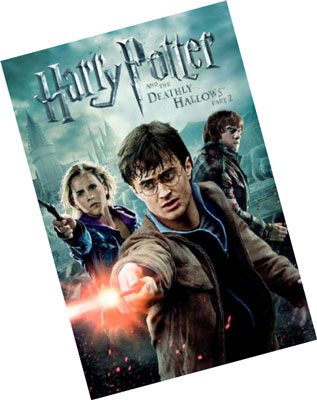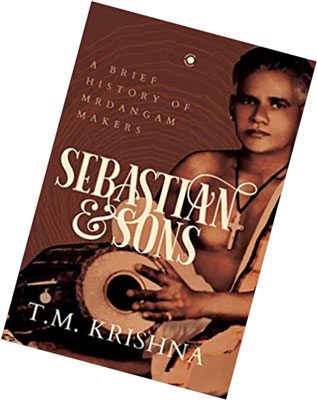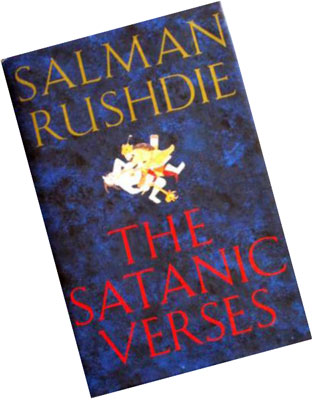Fighting over books Why do some books raise so much dust? What are we so afraid of?
As governments around the world react in a panic to the speedy dispersal of the corona virus, bans have been issued to travel; colleges and universities have declared long breaks with some of them postponing exams; conferences have been cancelled. There is one silver lining, though: this is resulting in a major reduction of carbon footprints because it seems there’s really no better solution than simply sitting put. And sitting put always gives me the hope that in between working from home and putting social media on overdrive, some of us will turn to books: pick up that one book you always wanted to read but just didn’t get the time?
This is a good time to catch up on reading. There’s so much interesting stuff being published on a range of subjects that you are bound to find something that will interest you. When Harry Potter first hit the scene, there was a massive buzz across the world, partly due to some terrific marketing strategies but equally due to compelling writing by J K Rowling. People who had never read anything before now began to be seen in ‘places that must be named’ clutching fat-fatter-fattest copies of the series. Although that frenzy has now died down, HP continues to do well. Yet….
Yes, yet, the Harry Potter books are banned in some schools in the US because it supposedly propagates sorcery and witchcraft. Stands to reason, though, because it is precisely about kids studying at a school of sorcery and wizardry. The reasons for some schools and even countries banning the books is rooted in religious dogma. They refuse to accept the argument that the series has more to do with magic and fantasy rather than occultism or satanic cults. The books are banned in all schools in the UAE, for instance, although they can be found in bookshops there, according to reports. Some churches in the US are vociferous in their denunciation of the books, as also in pockets of Bulgaria and Greece.
What does Rowling herself have to say about all this hoo-haa? Back in an interview with CNN in 1999, she declared, “I absolutely did not start writing these books to encourage any child into witchcraft. I’m laughing slightly because to me, the idea is absurd. I have met thousands of children and not even one time has a child come up to me and said, ‘Ms Rowling, I’m so glad I’ve read these books because now I want to be a witch’!”
Apparently, the reason for the ban is that it talks about sorcery and magic and these are no-nos among certain communities. Well, since most of the action takes place in a school for magic and wizardry, where quite naturally wizards abound, this isn’t surprising. Although, in a way, it is, isn’t it?
If Harry Potter could invite fatwas, is it surprising that The Satanic Verses did, forcing its author Salman Rushdie to go into hiding for around ten years after Iran’s Ayatollah Khomeini called for his death on the grounds that the book was offensive to the Prophet. When the succeeding government of President Khatami announced that it no longer supported the killing of Rushdie, he emerged from hiding with the manuscript of a new book called Joseph Anton, his alias during the ‘incarceration’. The fatwa, however, is still floating around.
The most recent book-related controversy occurred just a couple of months ago with the publication of classical musician T M Krishna’s book on mridangam-makers, Sebastian & Sons. Slated for an official launch at the prestigious Kalakshetra Foundation in Chennai, the function was upended by the management rescinding permission for the event because of its discomfort with the questions of caste raised in the book. In light of the fact that caste discrimination is alive and well particularly in the classical arts, and that we continue to play ostrich to this issue, Sebastian & Sons was bound to raise dust.
Srijan Deshpande succinctly describes the crux of the controversy in a review he wrote for scroll.in. He writes: “Sebastian & Sons is an unabashed exploration of the workings of caste discrimination through a case study of the mridangam, the percussion instrument that is fundamental to Carnatic classical music. The twelve chapters of the book take us … from detailed, illustrated accounts of the skin-work, woodwork and stone-work that go into the making of the mridangam to debates about tonal purity and aesthetic superiority; from alternative stories of makers from Andhra Pradesh and Kerala to the alterity of the few women makers in the business — and the spectre of caste inhabits each of these accounts, adamantly, every step of the way.” The stories and anecdotes recounted are a delightful and insightful account of social history; they unravel “the complex web of social institutions thate lie beneath the relationships between master musicians (usually Brahmins) and master craftsmen (many of them Dalit Christians) of the mridangam”.
As Deshpande points out, a work such as this encourages us “to re-evaluate our understanding of the aesthetics of our practice” reminding us that “traditional ideas of beauty … are products of human endeavour and have therefore been and continue to be shaped by ideas of caste, class and gender”.
Musicians, their families, connoisseurs, the entire fraternity has been ‘shook-up’ by the book: time will tell us more.
Back in 1939, John Steinbeck’s The Grapes of Wrath about tenant farmers forced to leave Oklahoma for California owing to economic pressures won a Pulitzer, but it angered many for its supposedly ‘communist’ sentiments and portrayal of working conditions. George Orwell’s dystopian Animal Farm (1945) was confiscated in Germany by Allied troops, banned in Yugoslavia in 1946, in Kenya in 1991, and the UAE as recently as 2002. Alice Walker’s The Colour Purple was considered sexually explicit and its language offensive. Tasleema Nasrin has been exiled for her writings.
Then there’s the classic case of Lolita (1955) by Vladimir Nabokov about a middle-aged man obsessing over a 12-year-old. Today, it is considered a classic piece of literature; then it was banned by many countries, including France, Canada, England, New Zealand, South Africa, and Argentina, for being ‘obscene’. J D Salinger’s The Catcher in the Rye (1951) describing three days in the life of a 16-year-old boy still raises censorious hackles even though the best librarians routinely recommend the book to young people, despite its generous use of colourful expletives.
Some books will always generate controversy, particularly if they are themed on sensitive subjects. That’s natural, that’s the consequence of having a voice. But when we declare that certain books must cease to exist for whatever reason, that’s when we need to sit up and think again. In the end, the reasons for books being banned are political, or rather, fear on the part of political agencies that what the books say will influence the people the political agencies wish to keep on a tight leash. It’s a fascist tendency and is the reason we must reject bans on books. It is our fundamental right to choose to read or not to read. But no one has the right to tell us what we may or may not read.
The columnist is a children’s writer and senior journalist.



